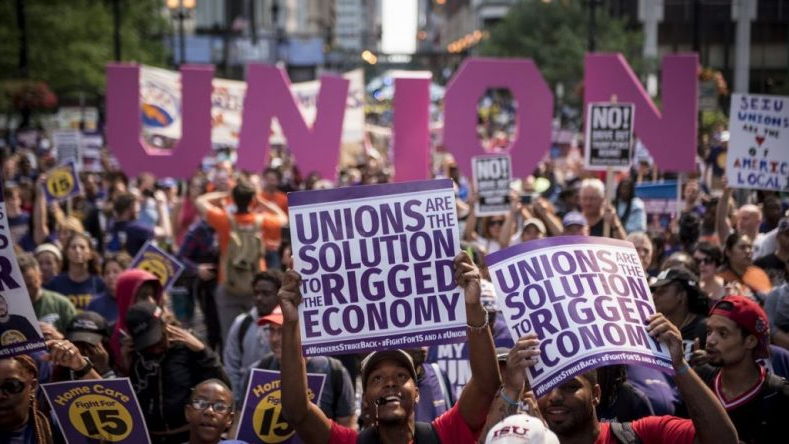In a major victory for trade unions, the United States House of Representatives has passed a bill to expand protections for unionization rights and collective bargaining. On Tuesday, March 9, the House passed the Protecting the Right to Organize Act or the PRO Act (HR-842) by a 225-206 margin. This is the first major federal legislation protecting labor rights in nearly a century, and has come after years of labor organizations seeking to expand collective bargaining rights and unionization.
Richard Trumka, president of the American Federation of Labor and Congress of Industrial Organizations (AFL-CIO), said that “this is the most significant step Congress has taken to strengthen labor laws in the United States in 85 years and a win for workers everywhere.”
Trumka and the AFL-CIO have been lobbying Congress for the law and had earlier this year characterized the bill as “the labor movement’s number one legislative priority this year” and in an interview called it a “game changer” if enacted as a law.
Lee Saunders, president of the American Federation of State, County and Municipal Employees (AFSCME), said in a statement that the vote “is a watershed moment for the labor movement and shows what working people can accomplish when we come together to demand a voice on the job and a seat at the table.”
The bill seeks to override state legislation (often known as ‘right to work’ legislation) that prevents collective bargaining and allows for workers to opt out of union dues. The new law can potentially allow unions to expand their membership base in workplaces to both gain recognition for collective bargaining and also to raise funds through membership fees to cover the costs involved in it.
The bill will also prohibit employer interference and various forms of union-busting, which often includes active campaigning against union activities, penalties for companies violating guidelines from the National Labor Relations Board (NLRB), allow for unions to seek arbitration and mediation in cases to resolve deadlocked negotiations, and also prevent employers from establishing discriminatory work terms based on immigration status.
The proposed law would also empower the NLRB to enact federal labor protections, fine companies USD 50,000 per violation and USD 100,000 for repeat offenders, award compensation to workers and damages against retaliation from employers, and even to grant “employee” status to more people deemed as “contractors” for unionization and collective bargaining purposes.
The bill will now be tabled in the Senate, where the Democrats, who largely support the bill, will have a more difficult task to pass it. Even though the Democrats have a slight edge, with vice-president Kamala Harris as a tie-breaker in a Senate divided down the middle, they will still find it difficult to pass the bill without facing a filibuster from the Republicans who have largely opposed it.
The legislation and the debate surrounding union rights in the US also comes at a time when Amazon workers in a major warehouse in Bessemer, Alabama, are voting to decide whether or not to establish a union of their own. Due to decades of anti-union legislation in the states and even multiple loopholes in federal labor protections, the current unionization rates in the US stands at a historic low of 10.8 percent as of 2020.
BREAKING: The House of Representatives just passed the LANDMARK #PROAct making it easier for EVERYONE to join a union.
Onward to the United States Senate. #1u pic.twitter.com/mdfjkWAcZ4
— AFL-CIO // Pass the #PROAct (@AFLCIO) March 10, 2021
BREAKING: The House just voted to pass the #PROAct and extend protections to #nurses and other workers who want to join or form a union, or exercise their union rights on the job!#1u pic.twitter.com/F2uJZ6iffO
— NationalNursesUnited (@NationalNurses) February 7, 2020





